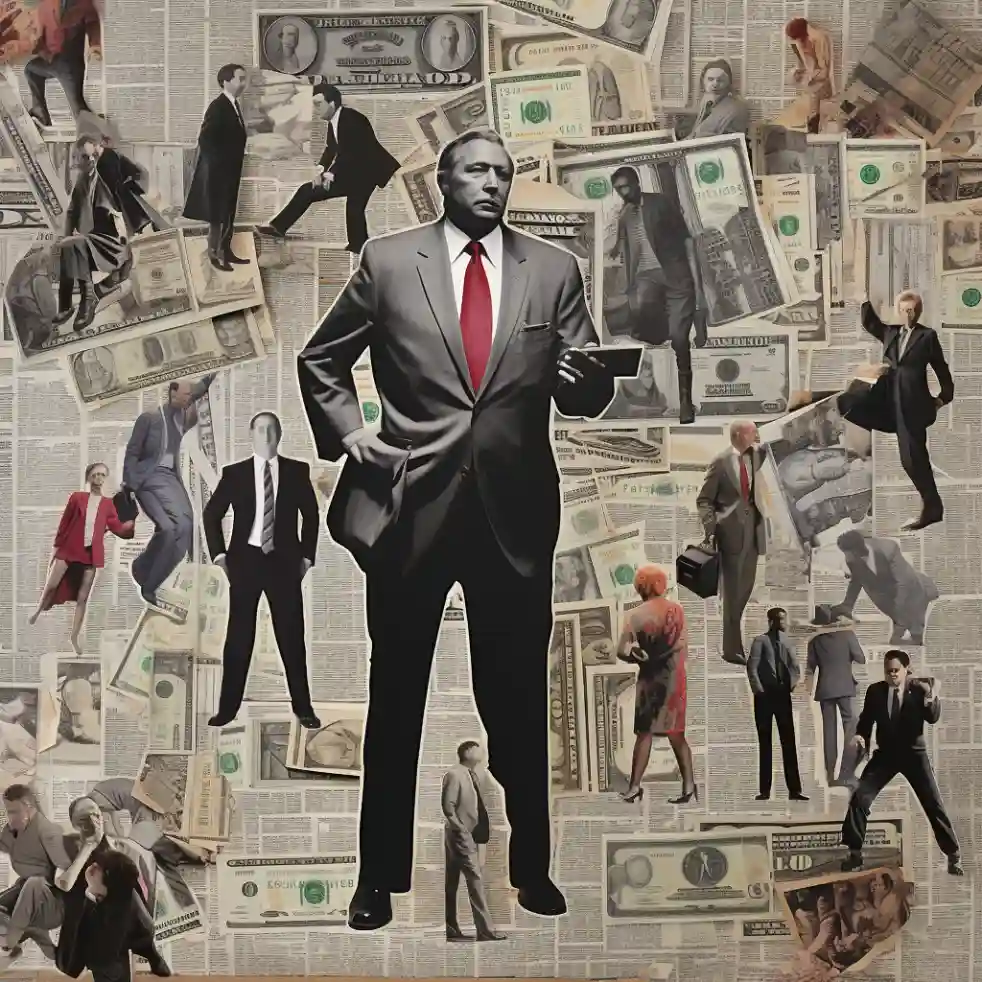

- Security
What is White Collar Crime? Types, Impact, and Notorious Cases 🔎
- By Irmin Corona
- English
- Read Time 5 min
White-collar crime has always intrigued me. The craftiness and intelligence behind these crimes and their far-reaching consequences make them an exciting subject for exploration. In this article, I will explore the different types of white-collar crimes, their impact on society, and some of the most notorious cases in history.
Table of Contents
Understanding White Collar Crime
White-collar crime is non-violent offenses committed by individuals or organizations for financial gain. Perpetrators of these crimes usually hold positions of power, such as business executives, politicians, or high-ranking professionals. “white-collar crime” was first coined by sociologist Edwin Sutherland in 1939, highlighting the distinction from traditional street crimes.
Types of White Collar Crimes
There are various white-collar crimes, each with distinctive characteristics and impact. Let’s take a closer look at some of the most prevalent ones:
1. Fraud:
Fraudulent activities involve deliberate masking for personal or financial gain.
These activities include securities fraud, insurance fraud, tax evasion, and identity theft. Notable cases like the Enron scandal and the Bernie Madoff Ponzi scheme involved complex financial fraud, resulting in significant investor losses.
To learn more about the Fraud Definition, click here.
2. Embezzlement:
Embezzlement occurs when someone in a position of trust misappropriates funds entrusted to them for personal use. Employees within organizations can divert company assets illegally. One infamous case is Andrew Fastow, former CFO of Enron, who embezzled millions of dollars from the company.
3. Insider Trading:
Insider trading is the illegal buying or selling of stocks or securities using non-public information. Individuals who possess privileged information about a company’s financial status or upcoming events use it to gain unfair advantages in the stock market. The case of Martha Stewart, the well-known American businesswoman convicted of insider trading, is a prime example.
4. Money Laundering:
Money laundering involves disguising the origins of illegally obtained funds by passing them through legitimate financial channels. Criminal organizations often use money laundering to “clean” their illicit gains. One prominent example is the case of HSBC, one of the world’s largest banks, which faced allegations of facilitating money laundering for drug cartels.
The Impact of White Collar Crime
White-collar crimes have far-reaching consequences that extend beyond financial loss. They deteriorate public trust, damage the economy, and perpetuate a culture of unethical behavior. Here are some key impacts of white-collar crime:
1. Financial Loss:
The financial implications of white-collar crimes can be monumental. Individuals, organizations, and entire economies can suffer significant financial losses, leading to bankruptcies, layoffs, and a slower economic growth rate.
2. Social Trust:
White-collar crimes committed by those in power and authority undermine public trust in institutions. When people perceive a lack of fairness and accountability, it can drain their confidence in the system, hindering social cohesion.
3. Reputational Damage:
Organizations involved in white-collar crimes often suffer severe reputational damage, causing the loss of clients, shareholders, and stakeholders. Reconstructing trust can take a lot of work, impacting the long-term sustainability of the business.

Notorious White Collar Crime Cases in History
Throughout history, there have been several notorious crime cases that have captured public attention. Here are a few examples:
1. The Enron Scandal (2001):
Enron, an American energy company, orchestrated one of the biggest accounting frauds in history. Company executives manipulated financial statements, concealed debt, and created fictitious companies to inflate profits artificially. The scandal resulted in the collapse of Enron and significant economic losses for investors. It tarnished the reputation of the auditing firm Arthur Andersen.
2. The Bernie Madoff Ponzi Scheme (2008):
Bernie Madoff defrauded thousands of investors out of billions in a massive Ponzi scheme. He promised high investment returns but used new investors’ money to pay off existing ones. The scheme eventually collapsed, leading to Madoff’s arrest and a lifetime prison sentence. This case exposed the vulnerability of the financial system to such fraudulent activities.
3. The Volkswagen Emissions Scandal (2015):
Volkswagen, the renowned German automobile manufacturer, was involved in a scandal where they deliberately manipulated diesel emissions tests to meet regulatory standards. The revelation resulted in massive fines, damaging reputation, and raising environmental concerns about the automotive industry.

Conclusion
White-collar crime continues to be a prevalent issue, impacting individuals, organizations, and societies worldwide. Efforts to combat these crimes must involve stronger regulations, increased transparency, and ethical leadership to deter potential perpetrators. Comprehending the different types of white-collar crimes and learning from the lessons of history is crucial in preventing future occurrences and protecting the well-being of our financial systems and society.
Related Posts


